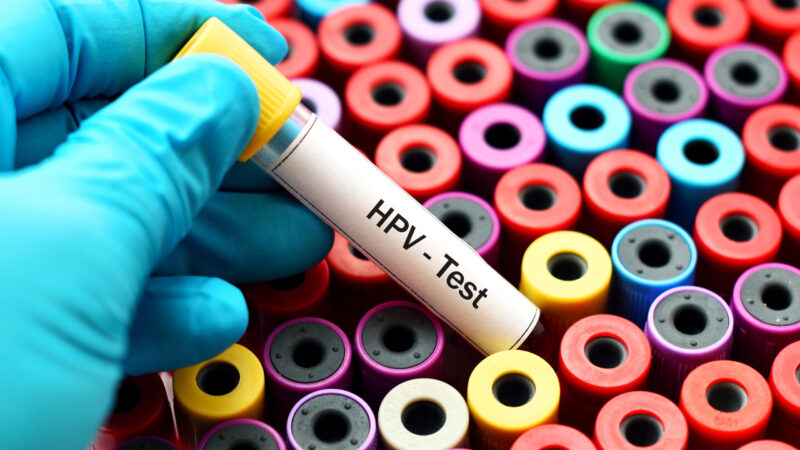How new at-home HPV test kits could help Alabama fight cervical cancer
The Food and Drug Administration has approved the country’s first at-home HPV screening kit. That disease causes nearly all cervical cancers. The Alabama Department of Public Health (ADPH) reports Alabama is consistently among the top five states for rates of cervical cancer. While some hope the new kits might turn things around, others have questions.
The new kits, made by Teal Health, come with a swab for collecting vaginal samples, which are then mailed to a lab for screening. Right now, the self-testing kits are only available for use on site at a clinic. And while currently the at-home kits are only being used in California, Alabama officials anticipate that will change.
“HPV self-testing is something that we have been hoping for for a while,” Nancy Wright said.
Wright is the director of ADPH’s Cancer Prevention and Control Division and leader of the state’s Operation Wipeout Cervical Cancer. She noted the kits were approved as potential alternatives to pap smears, which are widely considered uncomfortable and even painful.
“Often embarrassment and discomfort are barriers,” Wright said. “And then, even more importantly, in some of our rural areas, it’s very difficult to get access to that cervical cancer screening and access to care.”
Wright said she hopes the kits will help Alabama not only bring down high cervical cancer rates, but also reach its goal to eliminate cervical cancer entirely by 2034, despite its healthcare deserts.
“We can stop it to where our children and our grandchildren won’t even know what it is,” Wright said. “And we can do this within my lifetime.”
Others see the kits bringing further challenges.
“The thing I’m concerned about is the backstream and downstream sort of management of an abnormal test,” Dr. Warner Huh, chair of UAB’s Department of Obstetrics and Gynecology, said.
He said the at-home kits should be simple to use and studies have shown the results will be accurate. But he questions what happens if a test returns abnormal results.
“Where do they go?” Huh said. “Who sees them? Who’s gonna cover those costs potentially?”
Huh said he does not know for sure if the state can handle evaluating and treating those patients.
“I don’t want people to fall through the cracks knowing that they had an abnormal test and they A, couldn’t see somebody, or B, that there wasn’t someone potentially following up on those results,” Huh said.
He added that treatment is just as important to reducing cervical cancer rates as screening.
New York Giants hire John Harbaugh as coach after identifying him as their top choice
Harbaugh joins the Giants 11 days after he was fired by the Baltimore Ravens. The Super Bowl champion is now tasked with turning around a beleaguered franchise.
US launches new retaliatory strike in Syria, killing leader tied to deadly Islamic State ambush
A third round of retaliatory strikes by the U.S. in Syria has resulted in the death of an Al-Qaeda-affiliated leader, said U.S. Central Command.
NASA rolls out Artemis II craft ahead of crewed lunar orbit
Mission Artemis plans to send Americans to the moon for the first time since the Nixon administration.
Trump says 8 EU countries to be charged 10% tariff for opposing US control of Greenland
In a post on social media, Trump said a 10% tariff will take effect on Feb. 1, and will climb to 25% on June 1 if a deal is not in place for the United States to purchase Greenland.
‘Not for sale’: massive protest in Copenhagen against Trump’s desire to acquire Greenland
Thousands of people rallied in Copenhagen to push back on President Trump's rhetoric that the U.S. should acquire Greenland.
Uganda’s longtime leader declared winner in disputed vote
Museveni claims victory in Uganda's contested election as opposition leader Bobi Wine goes into hiding amid chaos, violence and accusations of fraud.






